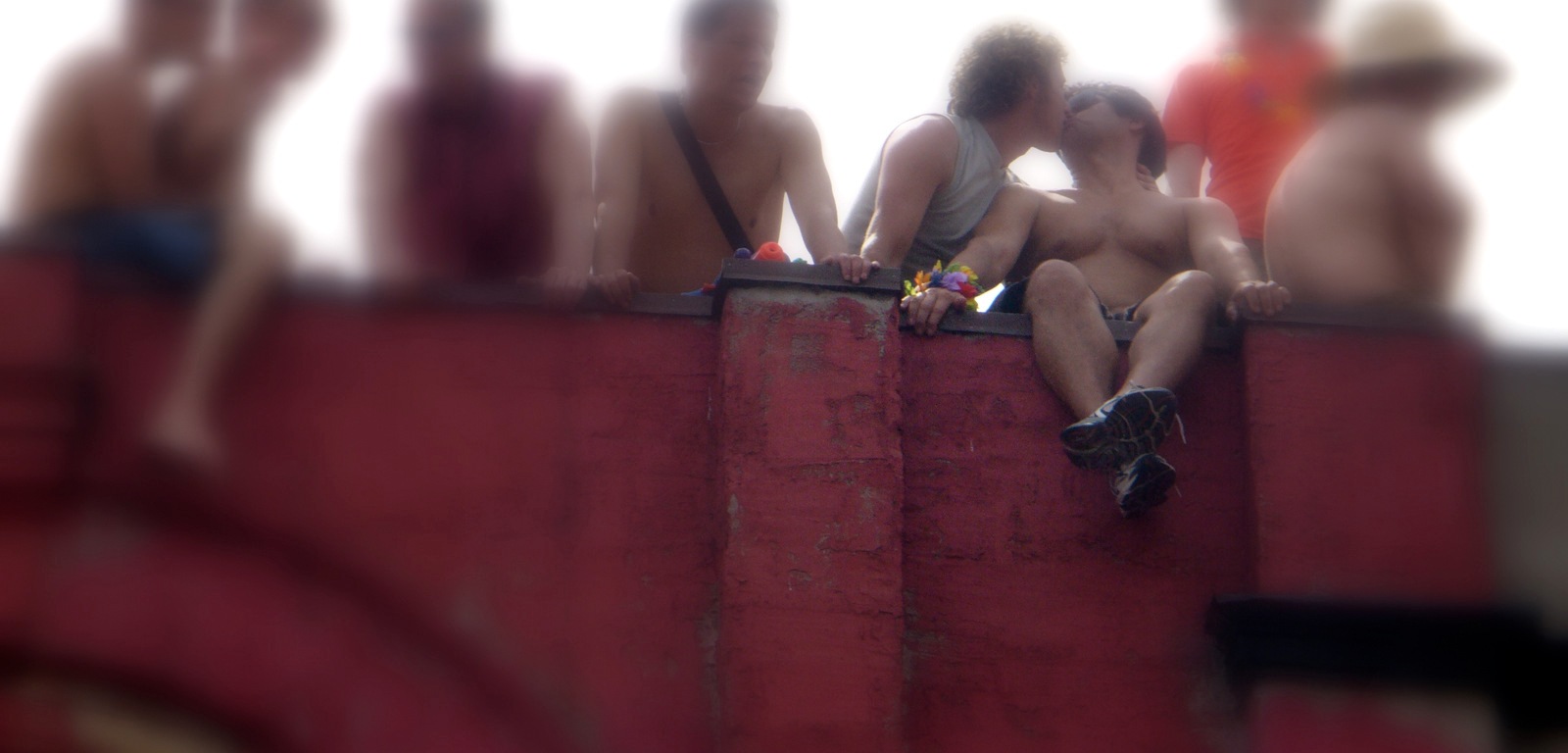AT VERONA
by Oscar Wilde
HOW steep the stairs within Kings’ houses are
For exile-wearied feet as mine to tread,
And O how salt and bitter is the bread
Which falls from this Hound’s table,–better far
That I had died in the red ways of war,
Or that the gate of Florence bare my head,
Than to live thus, by all things comraded
Which seek the essence of my soul to mar.
‘Curse God and die: what better hope than this?
He hath forgotten thee in all the bliss
Of his gold city, and eternal day’–
Nay peace: behind my prison’s blinded bars
I do possess what none can take away,
My love, and all the glory of the stars.
This week is a bit of a change from the norm…as I decided to feature one of my favourite writers. He was a flamboyant character, with a sly humour and a beautiful soul.
In 1895 he went on trial for homosexual offences – “On 25 May 1895 Wilde and Alfred Taylor were convicted of gross indecency and sentenced to two years’ hard labour“. [Wikipedia]
When first I was put into prison some people advised me to try and forget who I was. It was ruinous advice. It is only by realising what I am that I have found comfort of any kind. Now I am advised by others to try on my release to forget that I have ever been in a prison at all. I know that would be equally fatal. It would mean that I would always be haunted by an intolerable sense of disgrace, and that those things that are meant for me as much as for anybody else – the beauty of the sun and moon, the pageant of the seasons, the music of daybreak and the silence of great nights, the rain falling through the leaves, or the dew creeping over the grass and making it silver – would all be tainted for me, and lose their healing power, and their power of communicating joy. To regret one’s own experiences is to arrest one’s own development. To deny one’s own experiences is to put a lie into the lips of one’s own life. It is no less than a denial of the soul.
De Profundis.
120 or so years later, we still find ourselves imprisoned by prejudice and there are those who would still sentence a person to jail for loving another.
Perhaps this is on my mind of late as I am currently amongst a few troglodytes, and I just shake my head at the incredible ignorance and prejudice that spews from their mouths. The homophobia of the rural, backwards hicks that populate this village astounds me. I guess in the city I was sheltered, and I had forgotten how prevalent they really are. Perhaps through rose-coloured glasses, I chose to believe society had advanced past the prejudice of Wildes time, however, alas, that prejudice and prosecution are alive and well just as firmly on North American shores as it is on Russian soil.
Oscar Wilde died November 30th, 1900.
The epitaph (on his tomb) is a verse from The Ballad of Reading Gaol:
And alien tears will fill for him
Pity’s long-broken urn,
For his mourners will be outcast men,
And outcasts always mourn.
Someday I hope everyone is allowed to love whom they love and be who they are, without fear of prosecution, incarceration or prejudice.
INSPIRATION: George Takei On Sochi Olympics: How ‘Star Trek’s Sulu’ Is Waging War On Russia
[FEATURED PHOTO: the Gay Pride Parade, Toronto, June 2006]
Make a one-time donation
Choose an amount
Or enter a custom amount
Your contribution is appreciated.
Donate
Reblogged this on theINFP.
LikeLiked by 1 person
Housman wrote movingly about Wilde’s trial and imprisonment. “Oh who is that young sinner with the handcuffs on his wrists?
And what has he been after that they groan and shake their fists?
And wherefore is he wearing such a conscience-stricken air?
Oh they’re taking him to prison for the colour of his hair.
‘Tis a shame to human nature, such a head of hair as his;
In the good old time ’twas hanging for the colour that it is;
Though hanging isn’t bad enough and flaying would be fair
For the nameless and abominable colour of his hair.
Oh a deal of pains he’s taken and a pretty price he’s paid
To hide his poll or dye it of a mentionable shade;
But they’ve pulled the beggar’s hat off for the world to see and stare,
And they’re haling him to justice for the colour of his hair.” Thanks for the excellent post
LikeLiked by 1 person
Apoligies, I missed out the final verse of Housman’s poem, “Now ’tis oakum for his fingers and the treadmill for his feet
And the quarry-gang on Portland in the cold and in the heat,
And between his spells of labour in the time he has to spare
He can curse the God that made him for the colour of his hair.”
LikeLike
Beautiful…thank you for sharing that. Gave me tingles.
LikeLike